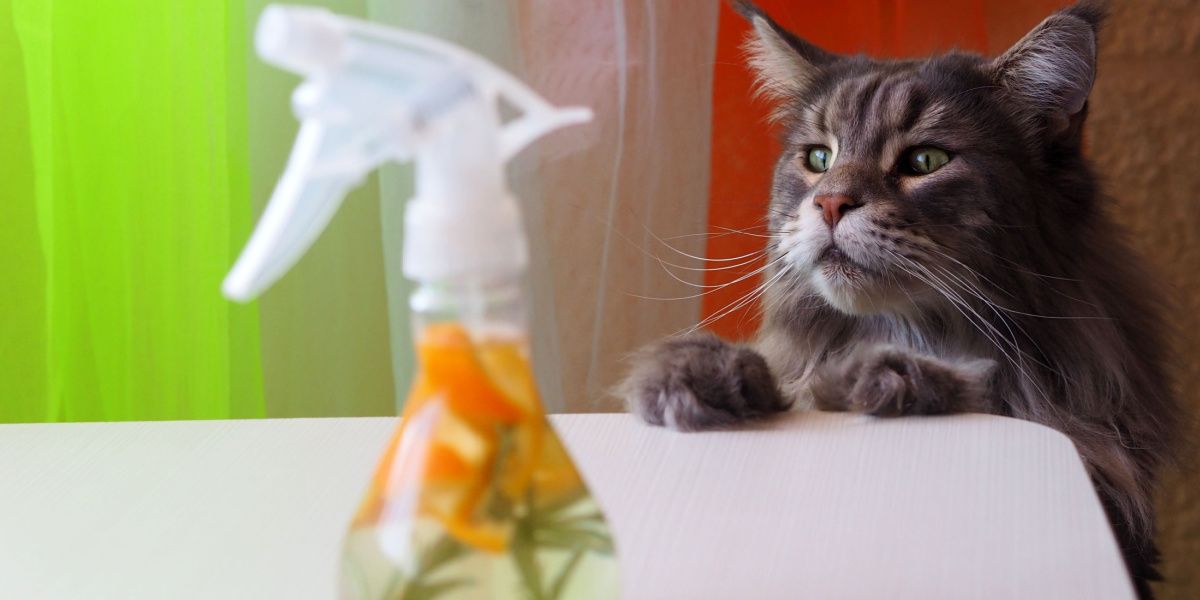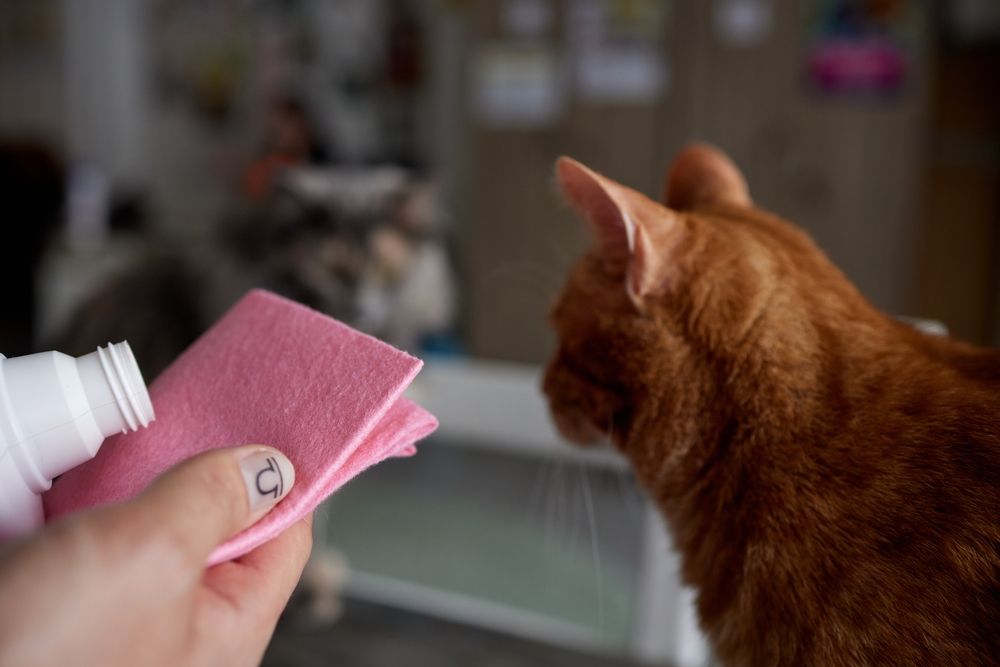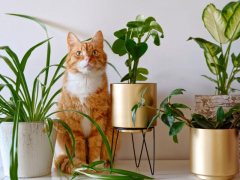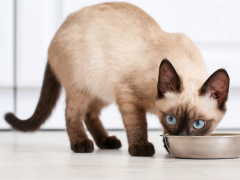
Shutterstock.com
Vinegar (also known as acetic acid) can be found in many different forms in different rooms in the home as it is such a versatile product with so many uses. Cats are notoriously inquisitive and will leave no stone unturned when exploring. It is important for pet owners to know which food products or cleaning products are safe and which are toxic for cats.
Cats are actually put off by the strong smell of vinegar and will avoid it if they can. This can mean that vinegar may be used as a deterrent if you are trying to keep cats away from a specific area.
Is Vinegar Safe for Cats?
Vinegar is safe for cats, it is not poisonous or toxic if they inhale or ingest it. It is an ideal cleaning product to use around cats as it is completely safe and non-toxic. It’s a cheap, readily available product that is popular in many homes with cat owners. It has a long shelf life and is easy to use. One of the reasons it is so popular is that it is very useful for getting lingering urine smells out of things.
If you are unfortunate enough to have a cat that sprays around your house, you will know that even after cleaning, there can be a faint smell of stale urine about. Vinegar can be used to rid of the smell from fabrics or hard surfaces. This is due to the fact that vinegar is an acid. Dried patches of urine form alkaline salts and the acid in the vinegar neutralizes it.
Can Cats Consume Vinegar?
Technically, yes, you can give small amounts of vinegar to your cat. Vinegar, especially apple cider vinegar, (also known as ACV) is supposed to have health benefits. There is some anecdotal evidence that apple cider vinegar helps with a cat’s skin and can aid in keeping a cat’s ears clean. There is currently no evidence that apple cider vinegar affects cat’s health.
There is no research into the administration of apple cider vinegar to cats, so it is difficult to say what would be a healthy dose. But overdosing a cat would be easily done due to their size. The acidity can affect your cat’s stomach too, so it is best to not give apple cider vinegar, or any other vinegar to your cat orally.
Uses for Vinegar Around the House
1. Cleaning Litter Boxes
Litter boxes need to be cleaned daily and right after your cat visits them for a poop. This is even more important if you have a multicat household. They also require regular deep cleaning. For this deep clean, vinegar is an excellent choice. Once the waste products and litter have been removed, a small amount can be poured into the tray and left overnight to soak.
In the morning, rinse the vinegar out to remove the smell and allow it to dry. This will prevent your cat’s litter box from smelling like cat pee too. This works because vinegar is an acid, so it neutralizes the alkaline cat urine. Diluted vinegar can also be used to clean down countertops after cats have walked on them.
2. Flea Deterrent

Shutterstock.com
There is a possibility that using vinegar when mopping your floors will act as a natural flea deterrent. It will also help to kill bacteria and remove mold spores. You can use 1/3 cup of white vinegar in a gallon of water then rinse with plain water afterwards. It is important to keep up to date with your routine flea treatment as well. Home remedies may help but they cannot be relied on to keep your pets flea-free.
3. Cleaning Food and Water Bowls
Cats’ water and food bowls need regular cleaning. Mineral deposits may build up on the bowls and water fountains, especially in areas where the water is hard. Soaking bowls once a week in vinegar and running vinegar through the water fountain will remove mineral deposits and keep your bowls and fountain clean.
Remember to rinse the vinegar off afterward to remove the odor. Vinegar can be mixed with baking soda and used to clean bowls too.
4. Use to Wash Cat’s Bedding
Vinegar can be used in the washing machine to remove odors from your pet’s bedding and blankets. Half a cup of vinegar can be added to the washing machine drawer and the machine will rinse away odors for you.
5. Cat Repellent
Cats do not enjoy the smell of vinegar. You can use part vinegar and water in a spray bottle to keep cats away from a specific area in your house. For example, there may be a piece of furniture they keep scratching. You can dab it on a cotton ball and wipe it around the door frames of rooms you don’t want your cat to enter.
Vinegar can also be used in the garden as a preventative measure to deter other cats from entering and upsetting your cat.
Other Uses for Vinegar For Cats
There are different types of vinegar available. As mentioned above, organic apple cider vinegar is often used as a health supplement. It is believed to have benefits including antimicrobial and antioxidant effects. Lots of humans take a teaspoon of apple cider vinegar every day.
It may have some health benefits such as reducing cholesterol, improvement of some of the symptoms of diabetes, and lowering blood sugar levels. It is believed to aid in relieving symptoms of urinary tract infections, ear infections, and bladder infections. Some owners claim it can be used for hot spots on their cat’s coat and as a repellant for fleas and mites.
There is currently no research to prove the addition of apple cider vinegar to your cat’s diet has any health benefits.
While it is unlikely to do your cat any harm in small doses, it is unnecessary to add it to their cat food. Even if you did want to give them some, it would be difficult as most cats are repulsed by the smell of the vinegar so they would be unlikely to swallow it in their drinking water or take it neat.
Vinegar and Kidney Disease
Although vinegar is not considered to be toxic or poisonous for cats, cats with kidney disease or similar health issues should not be given vinegar in any form. It is too acidic and it is difficult for cats with kidney failure to process it. Cats with kidney disease are often fed an alkaline diet so adding in anything acidic will be detrimental to their health.
Also Read: What’s the Best Food for Cats With Kidney Disease?
-
https://translate.cats.com/how-do-you-keep-a-cat-out-of-a-certain-room
-
https://www.petmd.com/dog/nutrition/can-pets-have-apple-cider-vinegar







